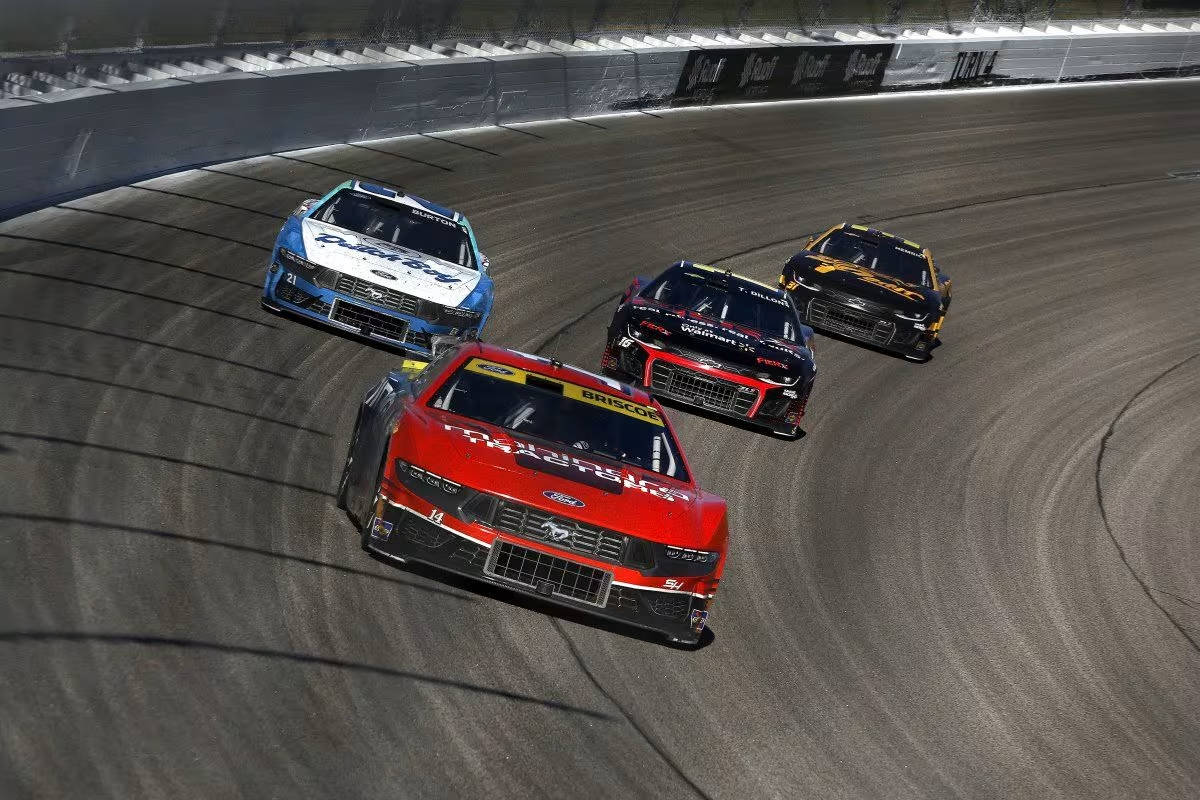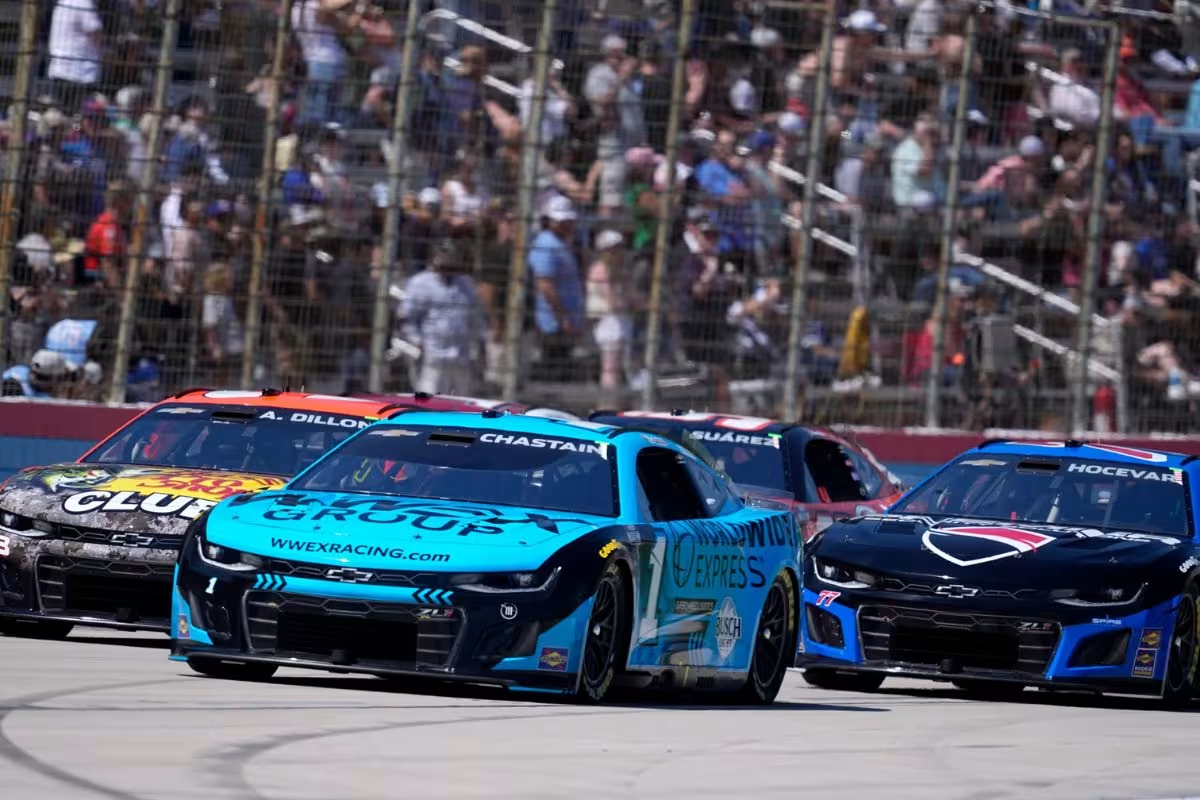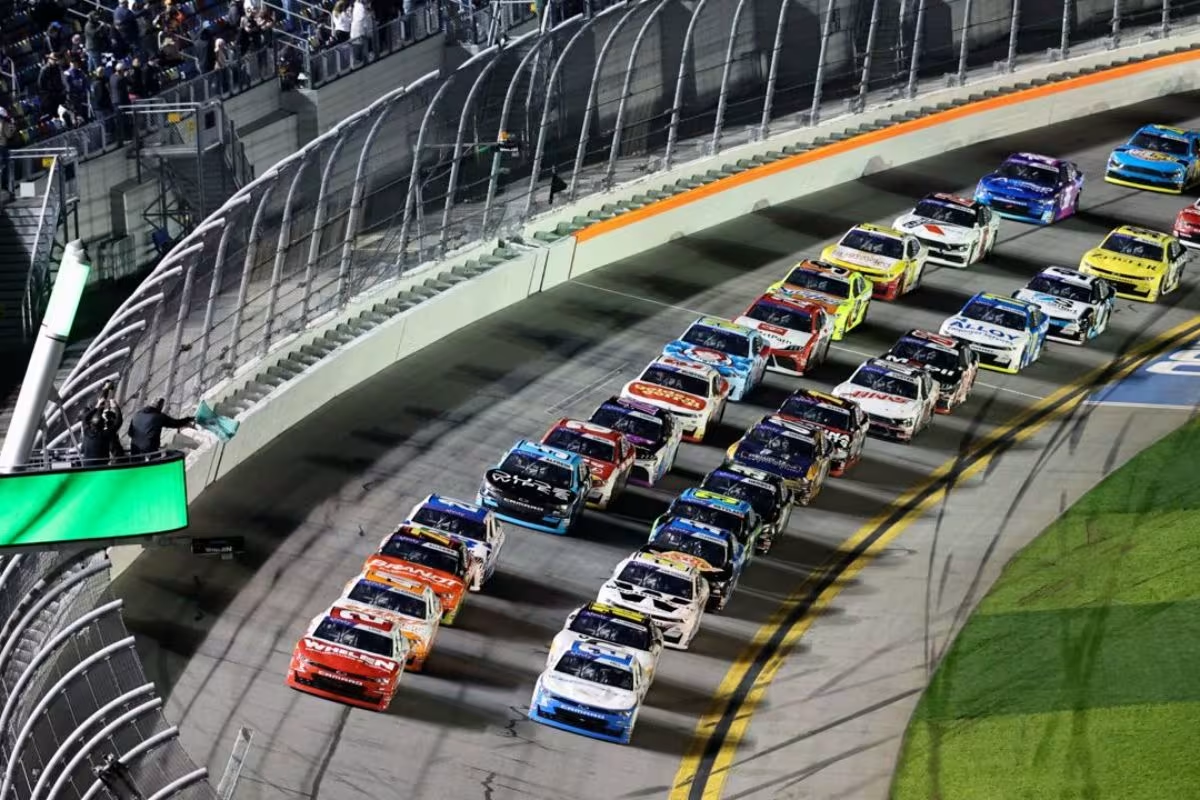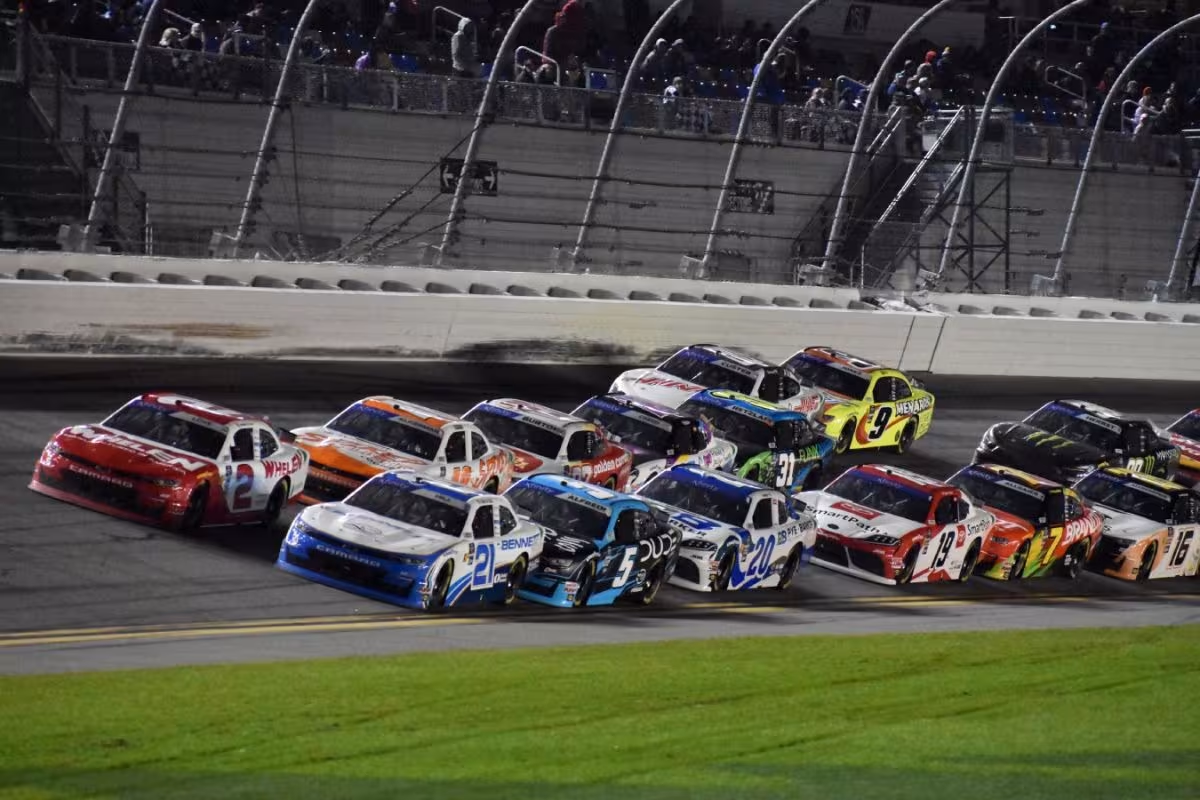NASCAR’s Antitrust Lawsuit: Chris Lencheski highlights notable hurdles for 23XI Racing and Front Row Motorsports in their antitrust lawsuit against NASCAR. With only two teams backing the claim, the lawsuit is critically lacking in support from the broader racing community. Lencheski notes the weak legal foundation, as the claims do not navigate the complexities of NASCAR’s revenue-sharing model and fail to demonstrate consumer harm. Further exploration into Lencheski’s insights reveals the intricate dynamics at play within the lawsuit’s context.
Key Highlights
- Chris Lencheski notes the limited support for the lawsuit, with only 23XI Racing and Front Row Motorsports participating.
- The lawsuit faces a weak legal foundation due to the lack of substantial antitrust precedent in NASCAR.
- NASCAR’s revenue-sharing model complicates claims of monopolistic practices from the two teams.
- Legal action risks alienating other teams and stakeholders, potentially harming collaborative relationships within NASCAR.
- Proving consumer harm is challenging, as there is little evidence linking NASCAR’s governance to negative fan experiences.
Overview of the Antitrust Lawsuit
The antitrust lawsuit filed by 23XI Racing and Front Row Motorsports represents a considerable challenge to the regulatory authority of the sport’s governing body. The crux of the lawsuit centers around claims that NASCAR’s operational practices may violate antitrust laws, potentially stifling competition and disadvantaging certain teams.
This legal action emerges as a noteworthy moment, indicating deeper fractures in the relationship between teams and the governing body. The plaintiffs argue that NASCAR’s governance structures create an uneven playing field.
By alleging that NASCAR exercises monopolistic control over critical resources and decision-making processes, 23XI and Front Row Motorsports hope to compel a reevaluation of the current regulatory framework.
Moreover, the lawsuit highlights the broader implications of governance in motorsport, raising questions about the balance between regulation and competition. While the antitrust laws are designed to promote a competitive marketplace.
The outcome will be closely watched, with implications that extend beyond the current plaintiffs to the very foundation of NASCAR’s competitive structure.
Insights from Chris Lencheski
Former NASCAR team owner Chris Lencheski offers a critical perspective on the antitrust lawsuit, highlighting key factors that may undermine its viability. His analysis focuses on the structure of the charter agreements and the implications of the teams’ decisions to engage in legal action. Lencheski points out that the lawsuit’s foundation appears weak due to the overwhelming majority of teams opting to sign the charter agreement.
He identifies four primary considerations:
- Limited Participation: With only two teams—23XI Racing and Front Row Motorsports—disputing the charter agreement, the lawsuit lacks broad support from the other 32 teams, which diminishes its credibility.
- Legal Precedent: The absence of a substantial precedent in similar cases may hinder the plaintiffs’ ability to prove their claims, making it challenging to establish a compelling argument for antitrust violations.
- Economic Realities: The economic landscape of NASCAR, including its revenue-sharing model, complicates claims of monopolistic practices, as many teams benefit from collective agreements.
- Potential Backlash: Lencheski warns that pursuing this lawsuit could alienate other teams and stakeholders, potentially damaging the collaborative spirit crucial for the sport’s success.
Concerns Regarding the Legal Argument
Concerns arise regarding the legal argument presented in the NASCAR antitrust lawsuit, particularly in the context of its foundation and implications.
Chris Lencheski highlights a pivotal issue: the argument is predicated on the notion that one or two teams can claim unfair treatment against a backdrop of 32 other organizations.
This raises questions about the uniqueness of the grievance and whether it truly reflects a systemic issue within NASCAR’s competitive framework.
“I’m still trying to square how any one individual organization among a business enterprise suggests that this was unfair to them, uniquely, and not unfair to the other 32, If 32 organizations stand up and say, ‘We all agree,’ then you might have some merit because there might be something unknown to me as a consumer I may not be aware of.”-(lencheski)
In this instance, the teams, rather than the fans—arguably the ultimate consumers—are the ones alleging harm.
| Aspect | Details |
|---|---|
| Claimants | Individual teams |
| Number of Organizations | 32 teams in total |
| Consumer Impact | Teams argue, not fans |
| Legal Burden | Proof of consumer harm required |
| Unique Grievance Question | Is the issue specific to one or two teams? |
Challenges in Proving Consumer Impact
Proving consumer impact in the NASCAR antitrust lawsuit presents considerable challenges, particularly due to the difficulty in establishing a direct connection between the teams’ grievances and the experiences of fans. While teams assert that NASCAR’s practices have negative implications, the evidence supporting a tangible impact on the race consumer remains elusive.
Several factors complicate this endeavor:
- Lack of Direct Correlation: Determining how NASCAR’s operational decisions translate into fan experiences can be tenuous. The grievances voiced by teams may not have a clear link to viewer satisfaction or engagement.
- Confounding Data: Hard data, such as viewership numbers or merchandise sales, may indicate a different narrative. For instance, despite team disputes, metrics might show stable or even growing fan engagement.
- Diverse Consumer Interests: The race consumer encompasses a broad spectrum of interests and motivations. What may negatively affect one team’s financial standing could be irrelevant to the broader fan base’s enjoyment of the sport.
- Subjective Experiences: Fans’ experiences are often subjective and can be influenced by numerous variables outside of team performance or NASCAR’s regulatory frameworks.
“The race consumer … is the person I’m focused on, All of this other stuff is millionaires versus millionaires style of discourse. It’s about how does it affect the race consumer? And nothing in the activity, in my eyes, by either NASCAR or Jim France affects the race consumer’s ability to enjoy the sport, engage in the sport meaningfully, or address the sponsors’ needs that would have been outside of one charter versus another.”-(lencheski)
Until a clearer link is established, the challenges in proving consumer impact will persist, underscoring the complexities of the current legal landscape in NASCAR.
News in Brief: NASCAR’s Antitrust Lawsuit
The antitrust lawsuit surrounding NASCAR raises considerable questions about the competitive landscape of the sport. Insights from Chris Lencheski highlight major challenges for teams like 23XI and Front Row in establishing their claims.
The difficulties in articulating a clear legal argument, coupled with the hurdles in demonstrating consumer impact, suggest an uphill battle for the plaintiffs.
ALSO READ: Richard Childress Racing on the Brink of Layoffs Amid NASCAR’s Controversial Moves




